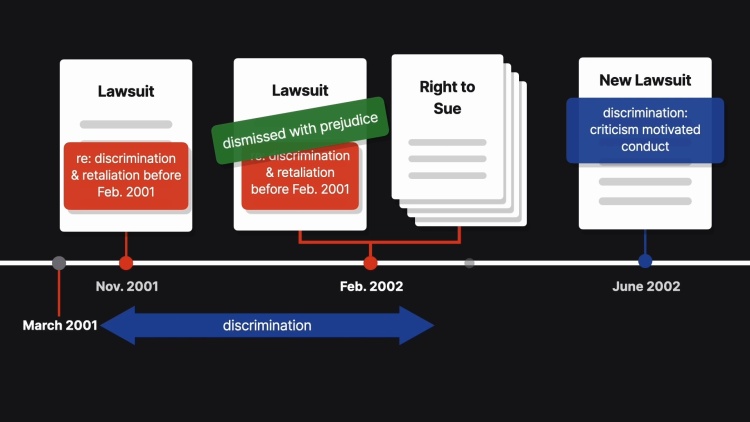Davis v. Dallas Area Rapid Transit
United States Court of Appeals for the Fifth Circuit
383 F.3d 309 (2004)
- Written by Matthew Carney, JD
Facts
Cedric Davis (plaintiff) and Rufus Johnson (plaintiff) were police officers employed by Dallas Area Rapid Transit (DART) (defendant). During their tenure at DART, Davis and Johnson alleged that they were the subjects of racial discrimination in promotion. They also claimed that they were investigated by DART in retaliation for making their complaints public. On November 16, 2001, Davis and Johnson sued DART for violations of Title VII of the Civil Rights Act of 1964, the First and Fourteenth Amendments to the United States Constitution, as well as 42 U.S.C. § 1983 (Davis I). The suit was based on conduct occurring between November 1998 and February 2001. Davis I was dismissed with prejudice in February 2002. In June 2002, Davis and Johnson filed a new lawsuit (Davis II), alleging racial discrimination in the lieutenant promotion process as well as retaliation for bringing Davis I. Davis II alleged acts that occurred between December 2001 and April 2002. Davis II’s claims were not made part of Davis I because Davis and Johnson were still awaiting a “right to sue letter” from the EEOC when they filed Davis I. DART filed a motion for summary judgment against Davis and Johnson, arguing that any claims other than discrimination in the lieutenant promotion process were barred by res judicata. The district court agreed and dismissed those claims. Davis and Johnson appealed.
Rule of Law
Issue
Holding and Reasoning (Prado, J.)
What to do next…
Here's why 899,000 law students have relied on our case briefs:
- Written by law professors and practitioners, not other law students. 47,000 briefs, keyed to 994 casebooks. Top-notch customer support.
- The right amount of information, includes the facts, issues, rule of law, holding and reasoning, and any concurrences and dissents.
- Access in your classes, works on your mobile and tablet. Massive library of related video lessons and high quality multiple-choice questions.
- Easy to use, uniform format for every case brief. Written in plain English, not in legalese. Our briefs summarize and simplify; they don’t just repeat the court’s language.






